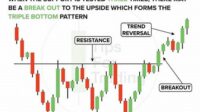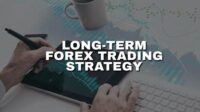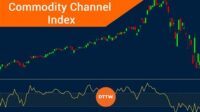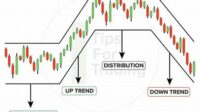Forex trading, also known as foreign exchange trading, involves buying and selling currencies with the aim of making a profit from the price fluctuations. Engaging in forex trading requires a comprehensive understanding of the market, as well as effective strategies and risk management techniques. Accurate and well-researched tips can significantly enhance the decision-making process and contribute to successful trading outcomes.
Forex trading offers numerous benefits, including the potential for high returns, accessibility to global markets, and 24/7 trading. However, it’s important to emphasize that forex trading also carries inherent risks. Therefore, traders must possess a strong understanding of the market, employ sound risk management strategies, and continuously seek knowledge to stay abreast of market dynamics.
To achieve maximum profits in forex trading, traders can leverage various resources and strategies. These include:
- Technical analysis: Studying price charts and patterns to identify potential trading opportunities.
- Fundamental analysis: Analyzing economic and political factors that may influence currency values.
- Risk management: Implementing strategies to minimize potential losses, such as setting stop-loss orders and managing position size.
- Trading psychology: Developing a disciplined and emotionally controlled approach to trading.
Accurate Tips for Forex Trading to Achieve Maximum Profits
Forex trading, involving buying and selling currencies, demands a comprehensive understanding of the market dynamics. To maximize profits, traders can leverage accurate tips and strategies, encompassing various aspects:
- Technical Analysis: Study price charts to identify trading opportunities.
- Risk Management: Implement strategies to minimize potential losses.
- Economic Analysis: Consider economic factors influencing currency values.
- Trading Psychology: Develop emotional control and discipline.
- Market Volatility: Understand the impact of market fluctuations on profits.
- Trading Tools: Utilize platforms and indicators to enhance decision-making.
These aspects are interconnected. Technical analysis helps traders identify entry and exit points, while risk management safeguards against excessive losses. Understanding economic fundamentals provides insights into currency behavior, and trading psychology ensures rational decision-making. Furthermore, recognizing market volatility enables traders to adjust strategies accordingly, while trading tools empower them with data and analysis.
Technical Analysis
In the realm of forex trading, technical analysis holds a pivotal position as a cornerstone of accurate and profitable trading strategies. It empowers traders with the ability to discern patterns and trends within price charts, offering valuable insights into potential trading opportunities.
The significance of technical analysis stems from its ability to provide objective and data-driven guidance, complementing fundamental analysis and risk management strategies. By studying price charts, traders can identify key support and resistance levels, chart patterns, and technical indicators that signal potential market movements.
For instance, recognizing a double top or double bottom pattern on a price chart can indicate a potential reversal in the market trend. Identifying a breakout above a resistance level, supported by strong volume, suggests a bullish momentum that could lead to profitable long positions. Conversely, a breakdown below a support level may indicate a bearish trend, prompting traders to consider short positions.
Mastering technical analysis requires dedication and practice, but its rewards can be substantial. By honing their skills in this area, traders gain a competitive edge, enabling them to make informed decisions and maximize their profit potential in the dynamic forex market.
Risk Management
Within the realm of forex trading, risk management stands as a cornerstone of accurate and profitable trading strategies. It empowers traders to navigate the inherent risks associated with currency fluctuations, safeguarding their capital and maximizing their profit potential.
Forex markets are renowned for their volatility, influenced by a myriad of economic, political, and geopolitical factors. Without effective risk management strategies, traders expose themselves to substantial losses that can erode their trading capital. Therefore, implementing robust risk management measures is paramount to achieving long-term success in forex trading.
One such strategy is position sizing, which involves determining the appropriate lot size for each trade based on the trader’s account balance and risk tolerance. Another crucial aspect is setting stop-loss orders, which automatically close a position when the market moves against the trader, limiting potential losses.
Furthermore, traders should employ leverage with caution, as it can magnify both profits and losses. Understanding the concept of risk-reward ratio is also essential, as it helps traders assess the potential return on a trade in relation to the potential risk.
By integrating risk management into their trading strategies, traders gain a crucial advantage. They can limit their exposure to losses, preserve their trading capital, and position themselves for consistent profitability in the dynamic and ever-changing forex market.
Economic Analysis
Within the realm of forex trading, economic analysis stands as a cornerstone of accurate and profitable trading strategies. It empowers traders to decipher the complex interplay of economic factors that influence currency values, enabling them to make informed trading decisions and maximize their profit potential.
- Interest Rates: Central bank decisions regarding interest rates significantly impact currency values. Higher interest rates tend to strengthen a currency, attracting foreign investment seeking higher returns.
- Economic Growth: Robust economic growth often leads to currency appreciation as it indicates a strong and stable economy. Traders monitor economic indicators such as GDP, employment data, and consumer spending to assess a country’s economic health.
- Inflation: Inflation, or the rate at which prices rise, is a crucial economic factor to consider. High inflation can erode the value of a currency, leading to depreciation. Traders keep a close eye on inflation data to gauge its potential impact on currency markets.
- Political Stability: Political stability and events can significantly influence currency values. Political uncertainty or turmoil can lead to currency depreciation, while stable and predictable political environments tend to strengthen currencies.
By integrating economic analysis into their trading strategies, traders gain a deeper understanding of the fundamental forces driving currency movements. This knowledge empowers them to identify trading opportunities, anticipate market trends, and make informed decisions that maximize their profit potential in the ever-evolving forex market.
Trading Psychology
In the realm of forex trading, developing emotional control and discipline stands as a cornerstone of accurate and profitable trading strategies. It empowers traders to navigate the psychological challenges and emotional rollercoaster that often accompany financial markets, enabling them to make rational decisions and maximize their profit potential.
- Understanding Emotions: Forex trading involves high stakes and can trigger intense emotions such as fear, greed, and excitement. Traders must recognize and understand these emotions to prevent them from impairing their judgment and leading to impulsive decisions.
- Controlling Impulses: Emotional control is crucial in forex trading. Traders must resist the urge to make hasty decisions based on fear or greed. Instead, they should develop a disciplined approach, adhering to their trading plan and avoiding impulsive trades.
- Managing Risk: Emotional discipline also extends to managing risk. Traders should set clear risk parameters and stick to them, avoiding overleveraging or taking on excessive risk that could jeopardize their trading capital.
- Learning from Mistakes: Mistakes are an inevitable part of forex trading. Emotionally disciplined traders learn from their errors, analyzing them objectively to identify areas for improvement rather than allowing emotions to cloud their judgment.
By cultivating emotional control and discipline, traders gain a significant edge in the forex market. They can make rational decisions, avoid costly mistakes, and maintain a clear and focused mindset, which is essential for long-term success and maximizing profits in the dynamic and ever-changing world of forex trading.
Market Volatility
Within the realm of forex trading, market volatility stands as a pivotal factor that can significantly impact profit potential. Volatility refers to the magnitude of price fluctuations over time, and understanding its implications is crucial for traders seeking to maximize their returns.
Market volatility can arise from various sources, including economic events, geopolitical uncertainties, and market sentiment. High volatility often indicates a period of rapid price movements, creating both opportunities and risks for traders.
For instance, during periods of high volatility, currency pairs may experience sharp price swings, offering traders the potential for substantial profits. However, these rapid movements can also lead to significant losses if not managed appropriately.
Traders can mitigate the risks associated with market volatility by employing effective risk management strategies. This includes setting appropriate stop-loss orders to limit potential losses, using leverage judiciously, and maintaining a well-diversified portfolio.
Understanding market volatility is an essential component of accurate tips for forex trading to achieve maximum profits. By anticipating and adapting to market fluctuations, traders can position themselves to capitalize on favorable market conditions while minimizing potential risks.
Trading Tools
In the realm of forex trading, the judicious utilization of trading tools and platforms stands as a cornerstone of accurate tips for achieving maximum profits. These tools empower traders with the ability to analyze market data, identify trading opportunities, and make informed decisions that can lead to enhanced profitability.
Trading platforms provide traders with a comprehensive suite of features and functionalities designed to facilitate efficient and effective trading. These platforms offer real-time data streaming, charting tools, and technical indicators that enable traders to monitor market movements, identify trends, and make precise trading decisions.
Technical indicators are mathematical calculations applied to price data that provide valuable insights into market trends and momentum. By incorporating technical indicators into their analysis, traders can identify potential trading opportunities, confirm their trading strategies, and make more informed decisions.
The effective use of trading tools and platforms can significantly enhance a trader’s ability to navigate the complexities of the forex market. By leveraging these tools, traders can gain a competitive edge, increase their accuracy, and ultimately maximize their profit potential.
Tips for Accurate Forex Trading to Achieve Maximum Profits
Engaging in forex trading demands a comprehensive approach that encompasses accurate analysis, strategic decision-making, and effective risk management. Here are several essential tips to enhance your forex trading accuracy and maximize your profit potential:
Tip 1: Master Technical Analysis
Technical analysis involves studying historical price data to identify patterns and trends that can signal future market movements. By employing technical indicators and chart analysis, traders can gain valuable insights into potential trading opportunities and make informed decisions.
Tip 2: Implement Risk Management Strategies
Effective risk management is crucial for preserving capital and protecting profits. This includes setting stop-loss orders to limit potential losses, using leverage judiciously, and maintaining a diversified portfolio to mitigate risk.
Tip 3: Understand Market Volatility
Forex markets are inherently volatile, and understanding how price fluctuations impact trading strategies is essential. Traders should monitor market news, economic data, and geopolitical events to anticipate and adapt to market volatility.
Tip 4: Utilize Trading Tools and Platforms
Trading platforms and tools provide traders with real-time data, charting capabilities, and technical indicators. By leveraging these resources, traders can enhance their market analysis, identify trading opportunities, and execute trades efficiently.
Tip 5: Develop a Trading Plan
A well-defined trading plan outlines your trading strategy, risk management parameters, and entry and exit points. Adhering to a trading plan helps maintain discipline, reduces emotional trading, and improves overall trading performance.
Tip 6: Continuously Educate Yourself
The forex market is constantly evolving, and traders must continually seek knowledge and refine their skills. Read books, attend webinars, and engage with experienced traders to stay abreast of market developments and enhance your trading acumen.
Summary
By incorporating these tips into your forex trading approach, you can increase your accuracy, make informed decisions, and maximize your profit potential. Remember that forex trading involves inherent risks, and a disciplined and strategic approach is essential for long-term success.







